0209 Now, let me flow through my discombobulated thought development, once again.
The empirio-normative judgment has the same general structure as the empirio-schematic judgment of the natural and the social sciences.
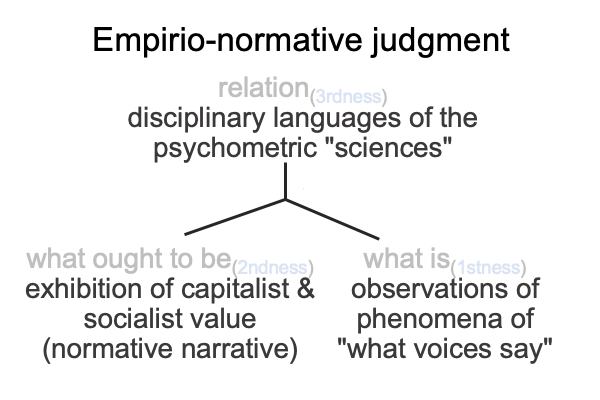
0210 The empirio-normative judgment occupies the perspective-level actuality2c is because it is what ought be for thePositivist’s judgment.
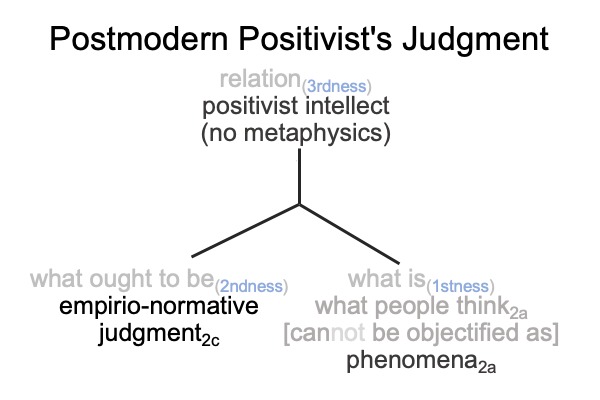
Or, something like that.
What ought to be for the postmodern Positivist’s judgment2c puts the expertb level into perspective.
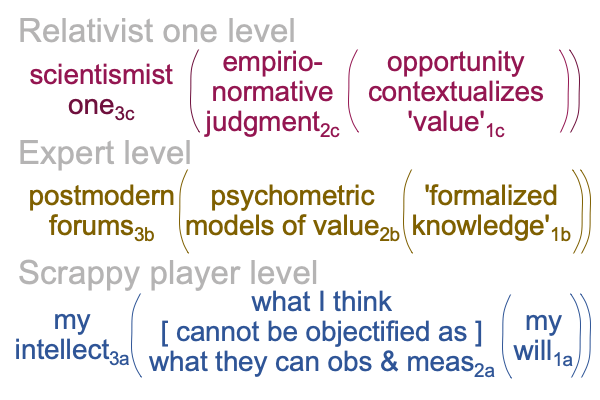
0211 On the perspective level, the normal context of the one of scientism3c brings the empirio-normative judgment2c into relation with opportunities1c to contextualize the entire expert level.
On the situation level, the normal context of postmodern forums3b, where discourse is conducted using specialized disciplinary languages (expertise), brings the actuality of psychometric models of value2b into relation with the potential of formalizing knowledge1b, where knowledge consists of observations and measurements of social phenomena, especially in regards to what people are willing to say to a surveyor2a.
0212 The expertb level contains an intersection composed of two nested forms whose actualities constitute one contradiction-filled actuality.
Here, the two aspects of research ethics are reduced to adjectives for capitalist and socialist value.
The capitalist nested form contains transactional value2 as its actuality. Transactional value2 concerns the causalities of financial exchange2bB and applies to the actuality2 on the situationb level of the organizationB tier.
The socialist nested form contains transcendental value2 as its actuality. Transcendental value2 concerns the causalities of organizational objects2aC and applies to actuality on the contenta level of the societyC tier.
0213 Here is a picture.
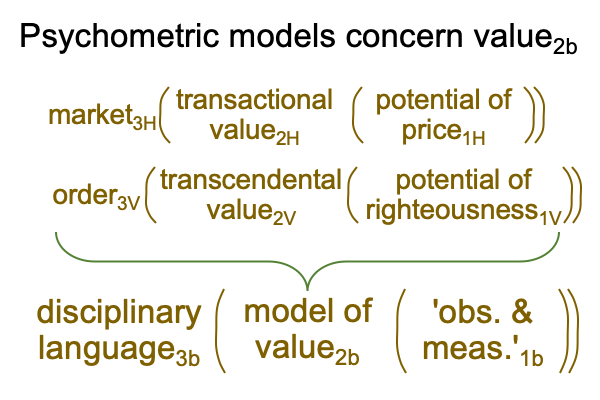
Models of value2b ought to be intelligible.
Intelligibility characterizes what ought to be for the empirio-normative judgment2c.
0214 For the content level of the post-truth interscope, the actuality2a is both what people are thinking and saying (that is, their opinions)2a and what the psychometric sciences regard as phenomena2a. My opinion2a can be separated into what I think2a and what I am willing to say to someone asking me questions from a survey2a. The latter serve as phenomena2a.
0215 At the same time, the content-level actuality may be formulated in the same manner as what is of the Positivist’s judgment. What is for the Positivist’s judgment says, “The noumenon cannot be objectified as its phenomena. Or, the thing itself cannot be objectified as its observable and measurable facets.” This is a universal statement, so the following comparison applies.
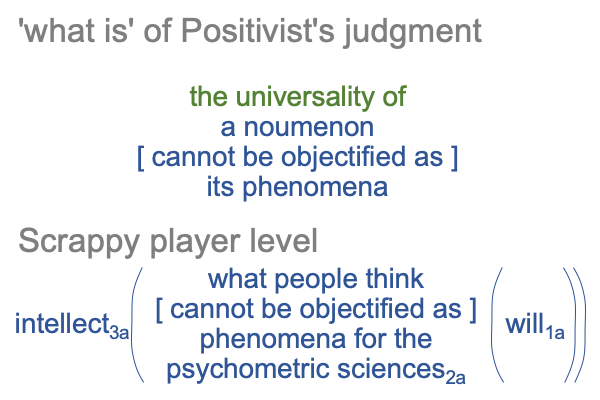
Universality characterizes what is for the empirio-normative judgment.
